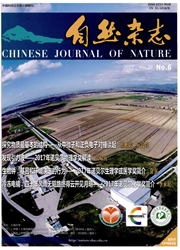

 中文摘要:
中文摘要:
长江三峡地区的古文化经历了大溪文化高潮后,于5000BP(BP为距今年代)前后开始衰退(东部显著),且在4000BP后发生全面衰退,该衰退现象恰好对应区域气候由稳定向不稳定的转型过程。气候转型中,其不稳定性增强,大溪文化期表现突出的原始种植业成分基本从经济构成中退出,渔猎经济成分在这一时期占据了绝对优势,生业经济表现出与自然条件的高度依存关系。总体而言,在6000-2000BP,三峡地区生业经济构成存在着由“渔猎一农耕”转型为”渔猎”,继而再转型为”渔猎一盐业”的演变特点,古文化内涵显现出”退中有进”“退中有转”的特征现象。这一方面反映出古文的提高,另一方面则仍烙有极为鲜明的地方自然环境适应性特征。
 英文摘要:
英文摘要:
After Daxi culture flowering, the ancient culture in the Yangtze Gorges region showed the recession around 5 kaBP, and full recession around 4 kaBP, which corresponds exactly to the transformation process of regional climate from stability to instability. The instability of climate increased evidently in the process of its transformation. The original planting was essentially out of the regional economy. The composition of fishing and hunting always occupied the absolute advantage in this period. The subsistence economy showed highly dependent relationship with natural conditions. In general, during 6~2 kaBP, the subsistence economy in the Yangtze Gorges region showed the evolution characteristics from "fishing and hunting-farming economic" to "fishing and hunting economic", and to "fishing and hunting-salt industry economic" again. The ancient culture connotation showed the special phenomenon of "progress during recession" and "transition during recession". All above, on the one hand, reflect the progressive of the environmental perception and active adjustment of ancient culture; on the other hand, they also reflect distinctly the cultural identities of local environmental adaptability.
 同期刊论文项目
同期刊论文项目
 同项目期刊论文
同项目期刊论文
 期刊信息
期刊信息
